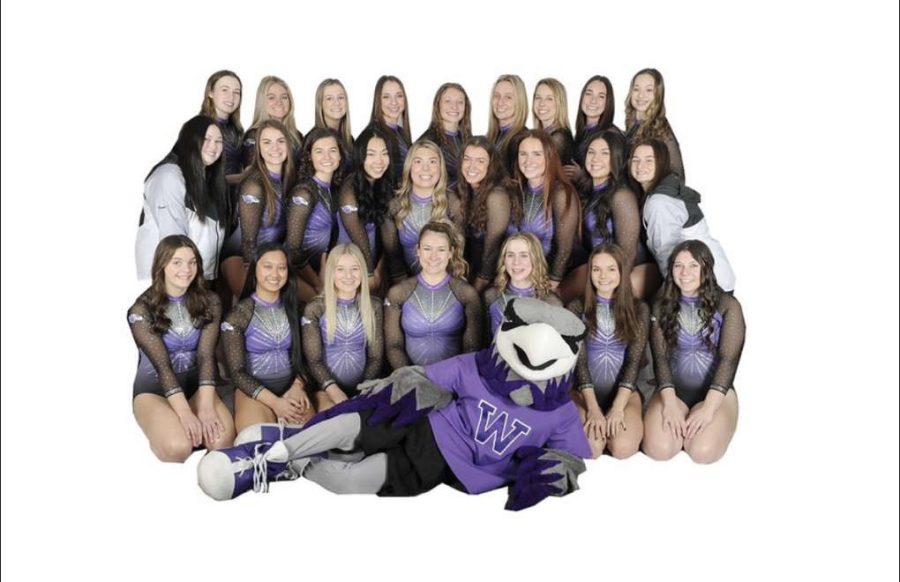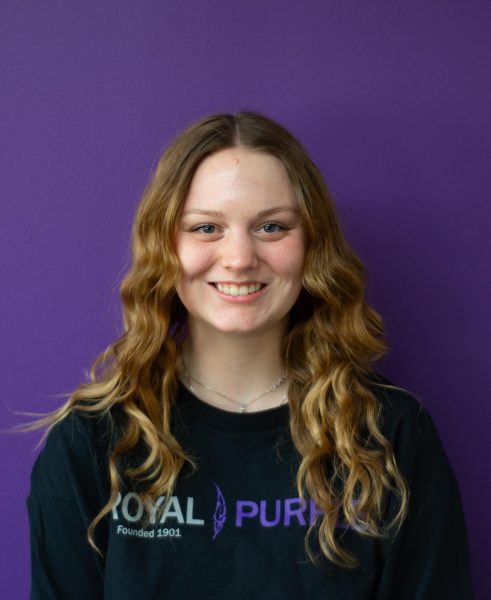Gymnastics recruits fly in from all over
The UW-Whitewater women’s gymnastics team has athletes from 14 different states and even one from Canada. Head coach Jennifer Regan focused on finding diverse gymnasts soon after getting her position.
March 5, 2023
When building a sports team, coaches typically build and stick to a certain list of attributes and qualities within their athletes. This type of guide likely varies coach to coach, as no team is the same.
The UW-Whitewater women’s gymnastics team is mainly recruited by assistant coaches Chloe Edgren and Siri Bartlein with some guidance from head coach Jennifer Regan. One of the more unique things about the team is that they actually have gymnasts from 14 different states besides Wisconsin and even one from Canada.
“Our philosophy changed after I was here for a couple of years and decided we needed to go out of state,” Regan said. “Not because there wasn’t the level of the gymnasts that we want here, it’s just that in order to stay competitive within our conference we needed to explore outside of our borders.”
Some of the states the women are from include Illinois, Ohio, Arizona, Texas, and Florida. Another state out of the 14 is Indiana, where senior Meg McGinley is from.
“There are a lot of gymnastics schools in general, so my best friend, who was a year above me, looked at all the Wisconsin schools and she kind of gave me an in on what schools to look at. She graduated from Whitewater last year, but before she was encouraging towards Whitewater even though I’d never heard of it since I’m from Indianapolis.”
McGinley said that when she personally looked into it, she actually ended up being interested in the school. But when she reached out to the assistant coach, and went through the recruitment process, that’s when she started to be sold.
“I think having my friend who was already here and having a familiar face definitely helped the process for sure,” McGinley said. “ But after I visited I felt like all the girls were super welcoming. I liked the vibe of all the girls and loved the coaches. I felt like I’d have to prove myself a bit, but I felt like they really believed in me and it was super comforting.”
Another out of stater is sophomore Richella Velarmino from Washington.
“I was actually recruited through Instagram,” Velarmino said. “I’m not sure if other athletes do this but gymnasts typically have a personal and then a gymnastics account on Instagram, just kind of throw themselves out there. One of the assistant coaches did reach out to me on Instagram and we talked for a little bit, they watched my videos, and then decided to get into contact.”
Despite being new to the recruitment process, Velarmino said she still felt comfortable and welcomed.
“Whitewater was the very first to recruit me, so it was all new for me. I kind of expected what was going to happen because my coaches and some alumni from our gym explained the process to me,” Velarmino said. “I actually ended up talking to one of the seniors at the time and she was a big help in telling me what would happen. She also explained to me how classes were and their workload since we have similar majors, and then what the practice schedule was like. Then the coaches set up a time for me to come for my visit. I really loved to hear my mom say she loved the school and I would say the whole thing was a pretty smooth process.”
For Regan, the smooth process is built in part by that familial relationship; both in gymnastics and at home.
“It’s all about getting to know the athletes and their families. Because when they drop them off, they know that they’re going to be ours 1000s of miles away, and they want to know that they’re going to be well taken care of and well supported,” Regan said. “So I think having gymnasts from different states brings a combination of things, but definitely it brings people from different areas and different backgrounds, which gets us to figure out how we can all connect and create our own little family here. We always talk about how we bleed purple.”
The diversity may lead to some learning, but they can still find commonalities through gymnastics and why they came to Whitewater.
“We can all relate to being far away, I’m not sure if anyone has been homesick but, we can definitely relate to each other,” Velarmino said. “I think it’s really funny, the differences in culture but I guess also living in experiences. Like we have people from Arizona, Texas, Tennessee, who have never really seen snow and so we’d love to make fun of that. We also all have our own little lingo sometimes so we’re all like ‘What does that mean?’, which I think is funny too. And sometimes some people are from so far away where they can’t always go home for say Thanksgiving, or spring break so we’ll all hang out together. We definitely have a deep connection which makes each other our family away from home and I’ve definitely heard that from a lot of my teammates too.”
The long distances also tend to unite not just the athletes but even the parents according to Regan.
“To me, it’s also very different from club gymnastics, because you tend to go in and you might not be with all the same families all at the same time. You don’t sit together all the same time,” Regan said. “Now they’re all united, they all want to be together and they all sit together and they’ve got their pom poms and their purple legs. And it just brings tradition and I think it comes kind of full circle and to see the parents. I was talking to a father last week and he was just like, so excited because his daughter was going to be on her first trip. He was so excited for her to experience being on the road and being with a team. I think it brings a lot for us as coaches and our other sense of family. We were really, really trying to look out for our athletes and I think we’re protective of them, we want to make sure that they’re safe and that they’re doing the right thing.”














